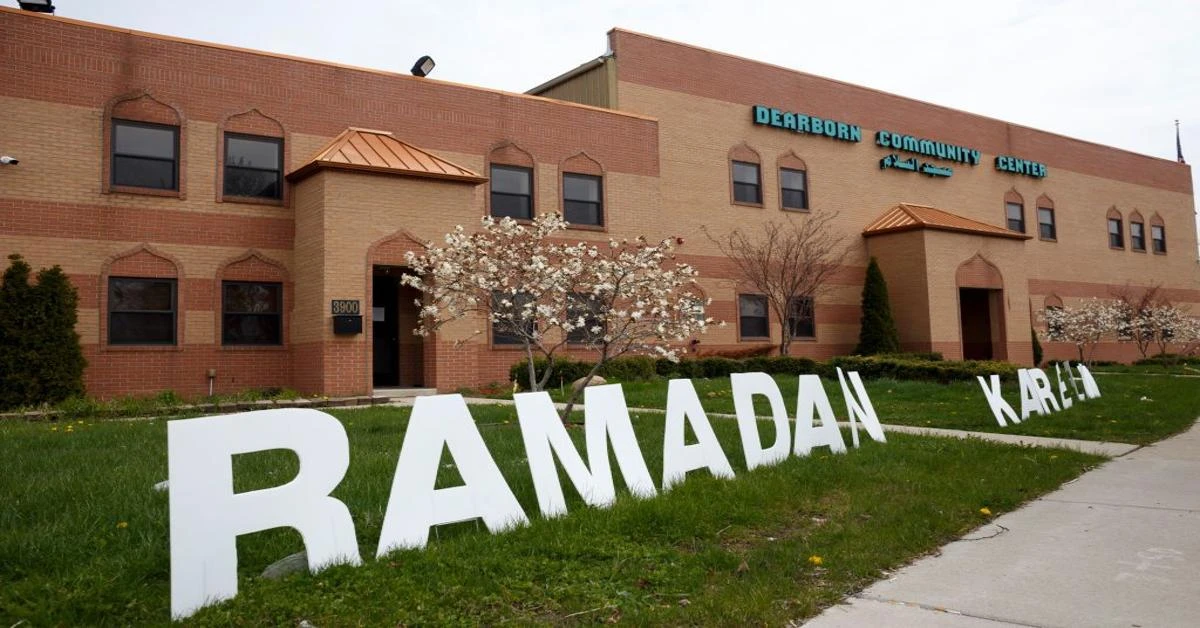Muslim students in US receive assistance, encouragement during Ramadan

Muslim students in the U.S. receive concessions during Ramadan, including exemptions from physical activities, sports, and lunch gatherings at schools
Muslim students in certain U.S. communities have garnered significant representation, leading public schools to be more attentive to their requirements during Ramadan, a sacred period in Islam that involves fasting from dawn to sunset.
In Dearborn, Michigan, where almost half of the 110,000 residents are of Arab descent, educators and staff at public schools make efforts to facilitate the observance of Ramadan by students. “We permit students to practice their faith independently as long as it does not disrupt the school day,” stated David Mustonen, a spokesperson for Dearborn Schools. “We also seek alternative spaces or activities within the school during lunchtime for fasting students.”
Mustonen emphasized that these students are still expected to complete all their assignments.
At East African Elementary Magnet School in St. Paul, Minnesota, a designated area in the library allows fasting students to engage in supervised activities like reading instead of being in the cafeteria during breaks, according to principal Abdisalam Adam. The school, which opened last autumn as part of St. Paul’s public school system, aims to strengthen cultural and linguistic ties with Somalia and other East African nations. Adam noted that around 90% of the students are Somali Muslims.
Adam, with nearly 30 years of experience in the district, instructs his staff that accommodating Ramadan observances aligns with the broader objective of looking after students. “All needs are interconnected,” he remarked.
For school districts less familiar with Muslim customs, there are available resources. For instance, the California-based nonprofit Islamic Networks Group offers online educational materials for educators on Ramadan and its importance to Muslims.
Maha Elgenaidi, the group’s executive director, highlighted that many districts lack knowledge about Islam and its traditions. “If they are unaware, they might struggle to provide appropriate accommodations to students,” she explained, emphasizing the importance of parental involvement in requesting accommodations.
Elgenaidi suggested that fasting students may require exemptions from strenuous activities in physical education classes and should be allowed to make up missed tests due to absences to celebrate the Eid al-Fitr holiday that marks the end of Ramadan.
“If students are not supported at school or if the school lacks awareness of their needs, they may feel like they are leading dual lives,” Elgenaidi concluded.
Young Muslim children are not obligated to fast during Ramadan, but many choose to participate in the month’s customs to be part of the rituals and follow the example of their parents and older siblings, as noted by news channel ING. Educators should also be aware of the typical adjustments that Muslim families make to their routines during Ramadan, such as waking up for the pre-dawn “suhoor” meal and potentially staying up late for mosque prayers, according to Elgenaidi.
When Dr. Aifra Ahmed’s children were younger, the Pakistani American doctor and her spouse would educate their classmates about Ramadan by sharing stories and distributing goodie bags containing items like dates.
“I realized that Muslim families in schools have a significant educational role to play,” remarked Ahmed, a resident of Los Altos, California.
Her husband, Moazzam Chaudry, highlighted that simple gestures, like offering a Ramadan greeting, convey a message of inclusivity.
For immigrant families, “the first thing that naturally comes to mind is, ‘Are we truly part of this society? Are we accepted here?'” he stated. “These small acts have a profound impact.”
Their daughter Punhal, who attends a charter middle school, participates in physical education during Ramadan but avoids running while fasting due to the need for water afterward. She shared that some non-Muslim friends expressed interest in fasting alongside her in solidarity.
Naiel, her brother attending a public high school, appreciated when a teacher discussed Ramadan with the class and offered him the option to rest if needed.
He hopes for better understanding of his fasting practice.
“Many students and teachers mistakenly believe that I’m punishing myself or following a diet,” he explained. “When I fast, I feel a deep sense of gratitude towards everyone around me and those who have less.”
Source: Newsroom



